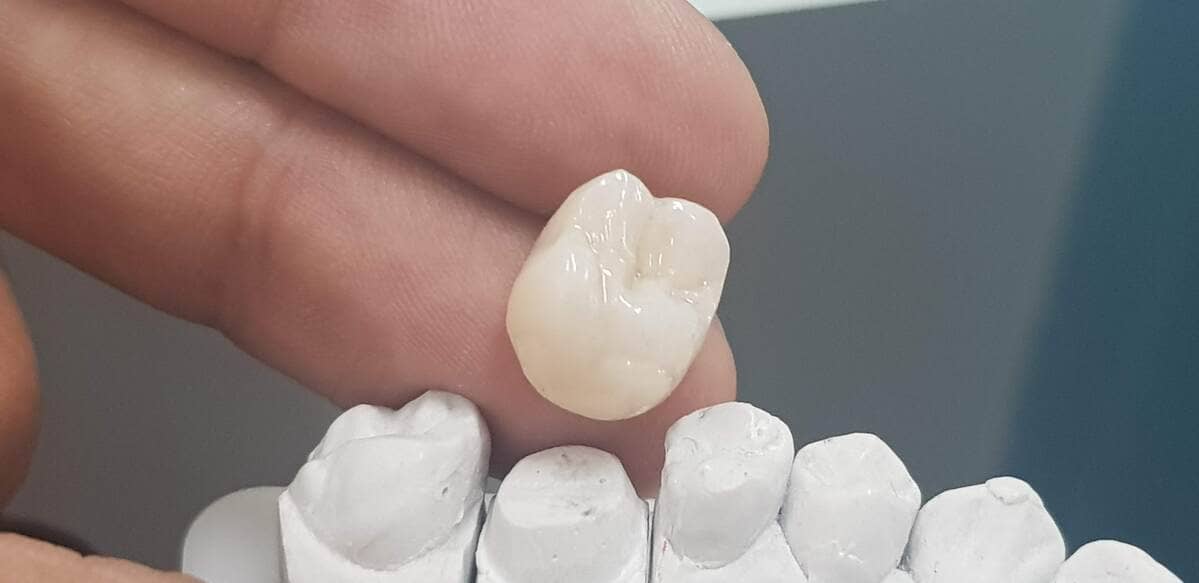Dental crowns are one of the most used techniques to recover dental pieces severely damaged by replacing the damaged natural tissue with special materials that emulate natural teeth.
They are mainly used in cases in which the external part of the tooth (natural crown) has been affected by large cavities or fractures that render the usefulness of calzas or even of the dental inlays
In this article we will explain in greater detail what dental crowns are, their importance in the world of dentistry, when it is necessary to use them, phases of treatment, as well as tips that will allow you to make an excellent decision for your health. oral health.

Table of Content
Dental crowns are dental prosthetics used to restore damaged or weakened teeth.
They are structures that are made of different materials that completely replace the upper part of a tooth or molar that has been seriously affected to strengthen it, protect it and improve its aesthetic appearance.
They have the color and anatomical shape of the original tooth, so they are practically imperceptible to the naked eye. They are designed to look like natural teeth and can be an effective solution for a variety of dental problems.
The materials from which it is made are increasingly similar to the natural enamel of teeth, mainly in terms of hardness.
Dental crowns are a resource that is used when the use of resins or fillings is no longer technically possible, nor is it possible to use inlays.
The determining factor is the amount of healthy tooth remaining. In the case of crowns, this healthy material is very small, that is, the tooth is largely destroyed; so much so that you have to completely cover it with a crown because there are no walls that can withstand the forces of chewing.
Dental crowns are also often made on the teeth used as pillars of a fixed prosthesis, specifically in fixed dental bridges.
Dental crowns offer a number of benefits, both functional and aesthetic. Some of the main benefits of dental crowns are:
There are different types of materials used in the manufacture of dental crowns, each with its own advantages and disadvantages. Some of the most common types of dental crowns are:
Given that the destruction of the tooth is practically total, it is often necessary to carry out a root canal treatment before starting the oral rehabilitation stage using dental crowns.
This endodontic treatment is performed either because the pulp is affected or because it is expected to occur after the crown is installed.
What is strictly necessary is the elaboration of a base that is nothing more than a reconstruction special in the form of a stump, post or abutment that serves as a support or base for the crown to be installed.
The stump or base is a smaller structure than the original tooth, made of special materials and has a shape that allows the dental crown to be placed on it, being very well adjusted
This base also distributes the chewing forces evenly to mitigate the risk of fractures, which is a very common risk in teeth as weak as those that require crowns.
In some very specific cases, this base is made with the same tooth tissue, in this case being called a natural stump.
Specifically for the case of implant crowns, the basic concept does not exist as such, in this case what is used are a series of accessories that are screwed to the implant and that serve as crown support.
With the base ready, its shape is copied using dental impression techniques. From this step, an exact replica of the base or stump is obtained so that the dental laboratory can make a crown that fits perfectly both to the base and to the gum.
After the impression, a temporary crown is made that will protect the stump while the final crown is made. This crown is fixed using provisional cements that allow it to be extracted more easily.
In a last appointment, the new crown is placed on the stump, adjusted and finally fixed with special adhesive materials to keep the crown in place and well sealed.
Like any dental treatment, dental crowns require regular check-ups to ensure their integrity and thus keep them longer in our mouths and in excellent hygiene and operating conditions.
Proper care of dental crowns is essential to keep them in good condition and prolong their lifespan. Some tips for caring for dental crowns include:
By following these tips and maintaining good oral hygiene, you will be able to enjoy your dental crowns for many years.
The cost of dental crowns can vary depending on several factors, such as the material used, the complexity of the case and if a root canal treatment is needed.
It is very important to consider all the associated costs, since many times they give you a price of one crown and do not specify the rest of the treatments that must be done, such as:
As a reference example, the cost of a dental crown in Quito can range between $500 and $700 per tooth including the necessary treatments listed above (core buildup, interim crown and definitive crown).
Dental crowns are, like any health treatment, an option that allows you to recover teeth that are practically lost.
It is important to consider multiple aspects such as the relevance or not of making a dental crown, as well as the materials, the dental aesthetics and the need or not to perform root canal treatment before dental caps.
Publicado el: 3 May, 2022
More info?